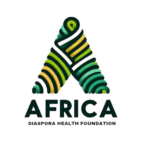In an increasingly interconnected world, the pursuit of well-being, whether physical or financial, often drives human endeavor. While seemingly disparate, the realms of health and strategic engagement share a common thread: the aspiration for positive outcomes. This article explores how we can humanize the understanding of these fields, focusing on their shared underlying principles of community, informed decision-making, and the profound impact of collective action.
The Africa Diaspora Health Foundation (ADHF) stands as a beacon of hope, embodying the human spirit’s capacity for empathy and action. Their commitment to improving healthcare access across Africa is a testament to the fundamental belief that everyone deserves the chance to live a healthy, fulfilling life. It’s not merely about providing medical services; it’s about restoring dignity, empowering communities, and building a sustainable future where preventative care and life-saving treatments are not privileges, but fundamental rights. This mission is deeply human, addressing the core vulnerabilities and aspirations of individuals and families. It recognizes that health is the foundation upon which all other progress is built economic, social, and personal.
Consider the human element in their work: the relief on a mother’s face when her child receives free medical care, the renewed energy of a community after essential health screenings, the countless lives transformed by access to vital medications. These are not abstract statistics; they are stories of resilience, hope, and the tangible impact of dedicated human effort. The ADHF model emphasizes a holistic approach, understanding that true health improvement requires more than just clinical intervention; it demands education, community engagement, and a deep understanding of local needs and cultural contexts.
On another plane, strategic engagement, whether in games of skill or other calculated risks, also highlights deeply human traits. It involves analysis, foresight, and the ability to make informed decisions under pressure. While the stakes are different, the underlying cognitive processesevaluating probabilities, understanding trends, and managing riskare universal. It speaks to our innate desire to understand patterns, predict outcomes, and strive for success, even in uncertain environments, much like those found in the world of strategic betting.
Ultimately, both spheres underscore the importance of informed choices. For ADHF, this means empowering individuals with health knowledge and access to care, allowing them to make choices that lead to healthier lives. It means strategic allocation of resources to address the most pressing health needs effectively. In a broader sense, both areas demonstrate how human ingenuity, compassion, and strategic thinking can converge to create meaningful impact. Whether it’s the meticulous planning required to run a successful health campaign or the calculated risk assessment in a competitive scenario, the human element of careful consideration, learning, and adaptation remains paramount.
By humanizing our understanding of these efforts, we recognize the profound stories behind every intervention, every decision, and every life touched. It allows us to appreciate the dedication of those working to bridge health disparities and the complex cognitive processes involved in strategic thinking. In both contexts, the ultimate goal is improvement, progress, and the betterment of human experience.
